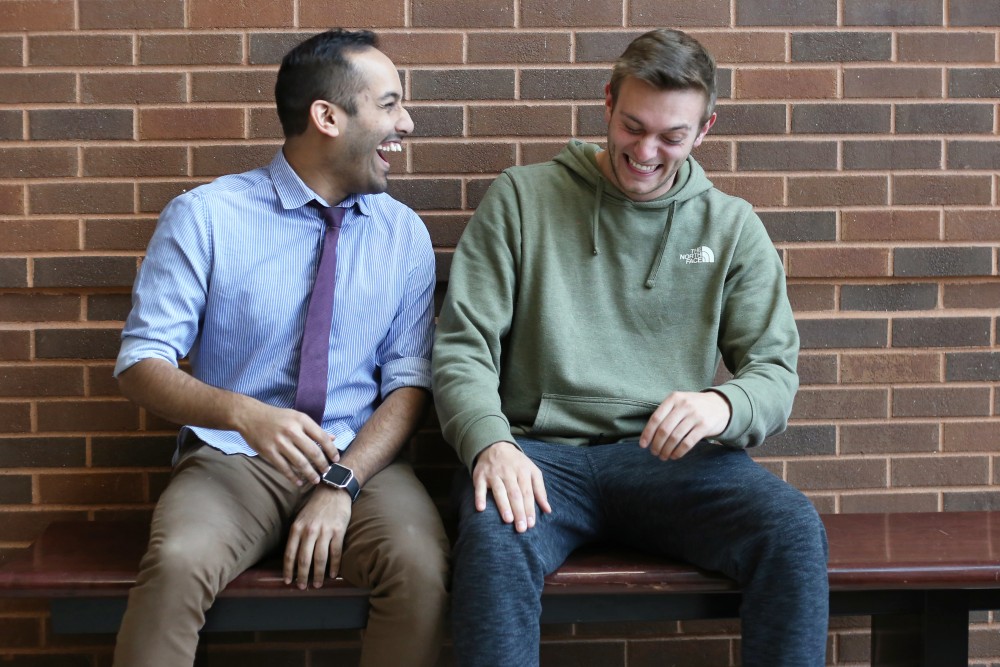Scores of college students turn to drugs each year to manage coursework and other stressors.
Two University of Minnesota seniors have created an all-natural supplement to boost cognitive function without health risks posed by drugs like Adderall.
Shoubhik Sinha and Andrew Koblas began developing NeurOwl — a blend of 100 mg caffeine and 200 mg of nootropic amino acid L-theanine — in October. Sinha presented NeurOwl to the University Entrepreneurship Club last week, and the partners hope to get the product into Maxwell’s Market in Marcy-Holmes by the end of next week.
“Every student gets tired,” Sinha said. “I would sometimes drink Mountain Dew or Coke, but I don’t like coffee, I don’t like tea. … I feel like there should be better options out there. Then I did some research on nootropics; they’re basically a category of chemicals … [that] improve human cognition and performance.”

The combination of caffeine and L-theanine “boost performance on rapid visual information processing, word recognition tests, attention and improve overall mood,” according to NeurOwl’s webpage, which cites various scientific studies.
While caffeine is correlated with alertness and improved focus, L-theanine has proven in general populations to reduce anxiety and counteract the “jitters” associated with caffeine.
“That’s something … core to our mission and our principles. Having everything that we do … backed not only by one study, but cross-referenced by multiple medical journals, various double-blind studies,” Koblas said.
The two business partners met and started NeurOwl as part of a senior-level course called entrepreneurship in action. Students use the first few months to generate business ideas before the class breaks into groups to work on their businesses.
A Carlson School of Management advisory board then critiques the business, challenging the goals and viability of its model to decide if it’s feasible or “a silly class project,” Koblas said.

Koblas and Sinha have marketed the product through Facebook, promoting it as “caffeine without the crash” and a “simple alternative to a coffee or energy drink.”
When the two tell consumers that NeurOwl is an alternative to Adderall, Koblas said it “really sparks a … big interest in the product.”
People who use Adderall can experience anxiety and depression, Koblas said, while NeurOwl users don’t report such symptoms.
“We want people to … question, at least think through the decision of taking Adderall and that there are other options out there for … staying up late … [and] being productive,” he said.
Dave Golden, director of public health and communications for Boynton Health, said campus Adderall abuse is a “significant problem,” and many students who take it do not need it.
Golden offered some alternatives to “study drugs,” citing sleep and stress management as most beneficial for cognitive performance. Effective stress management can result in a higher GPA, he said.
“It’s those students that develop the skills to really manage their stress that seem to be a lot more successful,” Golden said.







